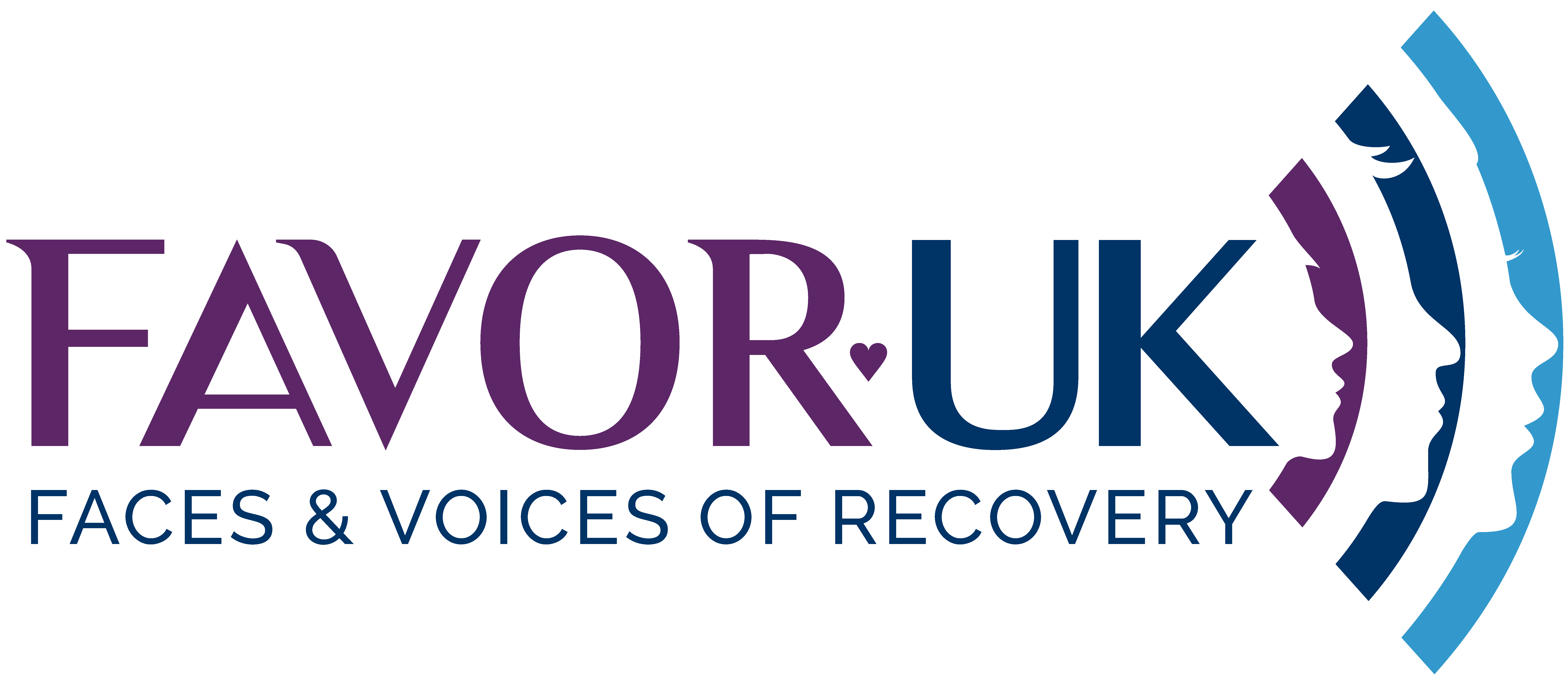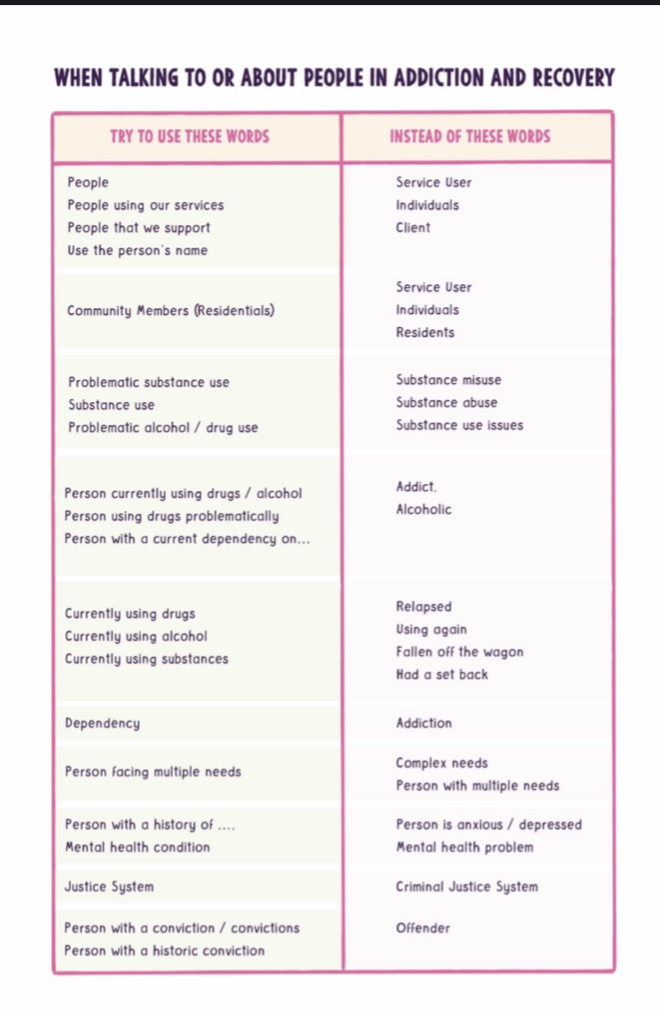Words and their meanings with which they are imbued can achieve accuracy and relevance or they can transmit dangerous stereotypes and half-truths. They can empower or disempower, humanize or objectify, engender compassion or elicit malignant fear and hatred. Words can inspire us or deflate us, comfort us or wound us. They can bring us together or render us, enemies. Put simply, our lives are profoundly shaped by the words we apply to ourselves and those that come to us from others.”
Bill White Addiction historian, academic & person in long term recovery
Recovery Friendly Language
We developed the language guide in partnership with Phoenix Futures and in consultation with people with lived and living experiences of using drugs and alcohol dependently.
It is aimed at people who work with people who use drugs and alcohol, people who work in the media, professionals and the general public.
Most people with living or lived experience of using substances have their own use of language that is meaningful to them, however, it can often be misunderstood or not understood at all by those outside of their communities. The guide is intended to offer recommendations on using language to empower people in active addiction and recovery and to reinforce the impact of person-centred language on challenging stigma.
The guide is by no means intended to influence how people in recovery or active addiction chose to self-identify when talking about themselves or suggest what language they should use to describe their own experiences when talking to people either inside or outside of their communities.
This guide is an ongoing piece of work, as the use of language evolves over time to reflect our changing lives, circumstances, experiences, and culture. As such the guide will be updated to reflect that shift.
You can download it at the link below.
https://www.phoenix-futures.org.uk//files/ebc7fa512bb3546f1d329316422995e0.pdf

